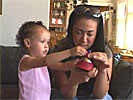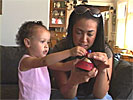Teacher Resources and Support Strategies for Overwhelmed Educators

Check out our blog for social-emotional learning articles, news, and more!

 A recent UK government-commissioned report on early intervention stated that "what parents do is more important than who they are" (Allen, 2011, p. xiv). The report emphasised the importance of support for families at disadvantage at an early age before behavioural and social problems become entrenched and more expensive to tackle. Children classified as securely attached in the first 12 to 18 months develop better peer relationships at pre-school (Sroufre, Fox, & Pankake, 1983) and achieve better academic outcomes (Pearson et al., 2011).
A recent UK government-commissioned report on early intervention stated that "what parents do is more important than who they are" (Allen, 2011, p. xiv). The report emphasised the importance of support for families at disadvantage at an early age before behavioural and social problems become entrenched and more expensive to tackle. Children classified as securely attached in the first 12 to 18 months develop better peer relationships at pre-school (Sroufre, Fox, & Pankake, 1983) and achieve better academic outcomes (Pearson et al., 2011).
The increased emphasis on investing support for families before children enter school has increased the need for assessment tools that support and encourage positive parenting. Identifying the positive parental behaviours that promote healthy child development is challenging as many of the current observational codes have been designed for parents? interactions with older children. This article describes the development of a new observational code to analyse the behaviour of mothers playing with their baby in the first 18 months. The six predetermined positive parenting behaviours are analysed using video recordings from the home. Practitioners can be trained to use the code and a manual facilitates future researchers and clinicians to evaluate parent behaviour with their infant in a natural environment and with minimal disturbance to the family.





